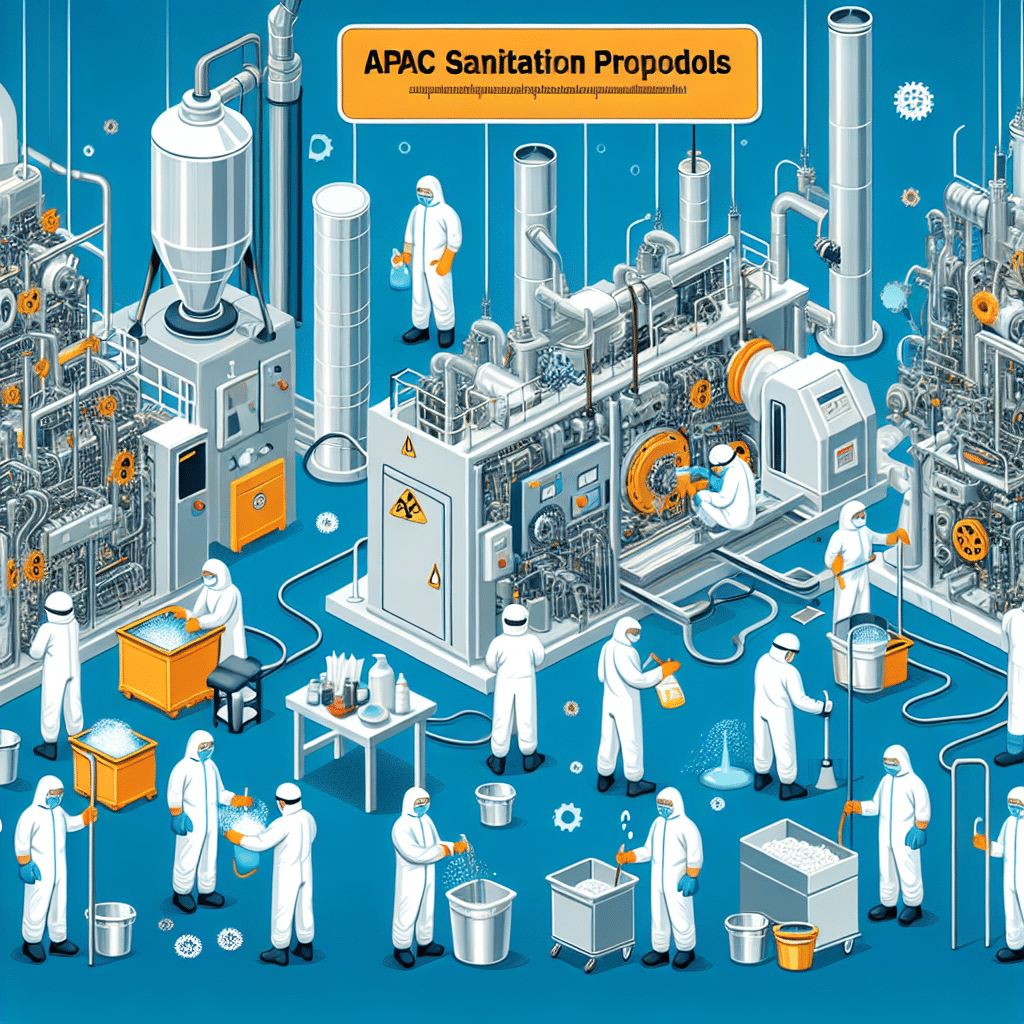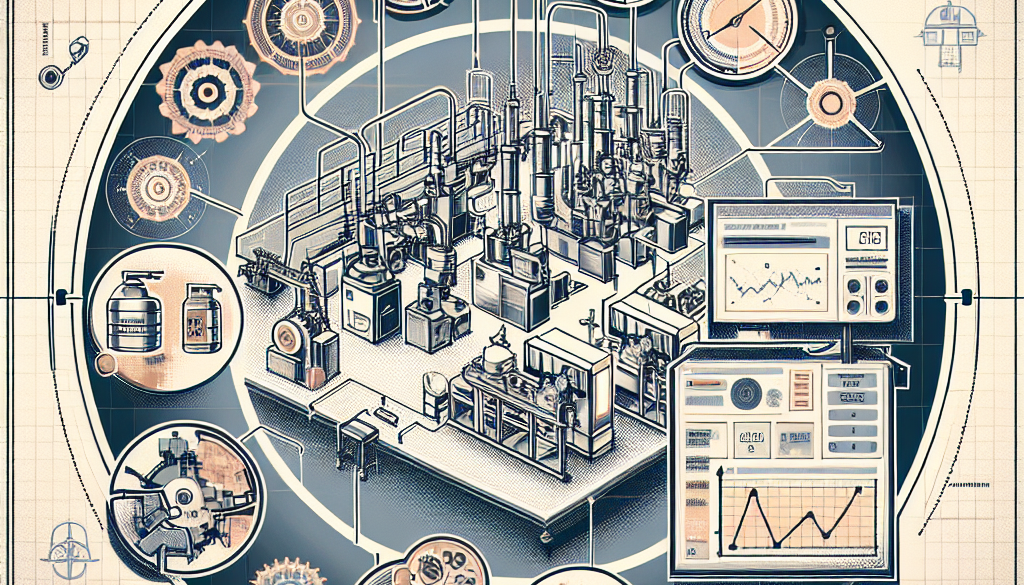The APAC Imperative for Equipment Maintenance and Sanitation Protocols
-
Table of Contents
- APAC’s Focus on Equipment Maintenance and Sanitation Protocols
- The Importance of Maintenance and Sanitation in APAC Industries
- Challenges in Implementing Maintenance and Sanitation Protocols
- Strategies for Effective Equipment Maintenance and Sanitation
- Statistical Insights into APAC’s Maintenance and Sanitation Efforts
- Case Studies: APAC’s Success Stories
- Conclusion: The Way Forward for APAC
- ETprotein: Enhancing APAC’s Protein Industry Standards
APAC’s Focus on Equipment Maintenance and Sanitation Protocols

The Asia-Pacific (APAC) region, with its burgeoning economies and rapidly expanding industrial sectors, has become a focal point for stringent equipment maintenance and sanitation protocols. The imperative for robust maintenance and sanitation measures is not only a matter of regulatory compliance but also a critical component of operational efficiency and product quality. This article delves into the significance of these protocols in the APAC region, the challenges faced, and the strategies employed to ensure the highest standards are met.
The Importance of Maintenance and Sanitation in APAC Industries
APAC’s diverse industries, ranging from food and beverage to pharmaceuticals and manufacturing, all require meticulous attention to equipment maintenance and sanitation. The reasons for this are manifold:
- Regulatory Compliance: APAC countries are increasingly aligning with international standards to ensure trade compatibility and consumer safety.
- Product Quality: Proper maintenance and sanitation are essential to prevent contamination and ensure high-quality products.
- Operational Efficiency: Regular upkeep reduces the likelihood of equipment failure and downtime, thus optimizing production.
- Worker Safety: A clean and well-maintained environment minimizes the risk of accidents and health issues.
Challenges in Implementing Maintenance and Sanitation Protocols
Despite the clear benefits, APAC industries face several challenges in implementing effective maintenance and sanitation protocols:
- Resource Limitations: Small and medium enterprises may lack the financial and human resources to implement comprehensive programs.
- Training and Awareness: There is often a gap in the necessary training and awareness among staff regarding best practices.
- Technological Advancements: Keeping up with the latest technologies for maintenance and sanitation can be daunting for many companies.
- Cultural Differences: Diverse cultural practices across the region can affect the standardization of protocols.
Strategies for Effective Equipment Maintenance and Sanitation
To overcome these challenges, APAC industries are adopting a variety of strategies:
- Investment in Technology: Automated systems and smart sensors are increasingly used for predictive maintenance and sanitation monitoring.
- Training Programs: Companies are investing in comprehensive training to ensure that staff are well-versed in maintenance and sanitation procedures.
- Third-Party Audits: External audits help ensure that maintenance and sanitation protocols meet international standards.
- Collaboration: Sharing best practices and technologies within industry associations can help raise the overall standard.
Statistical Insights into APAC’s Maintenance and Sanitation Efforts
Recent statistics highlight the growing emphasis on maintenance and sanitation protocols in the APAC region:
- A study by MarketsandMarkets projects that the Asia-Pacific region will witness the highest growth in the industrial cleaning market, with a CAGR of 5.98% from 2020 to 2025.
- The food safety testing market in APAC is expected to reach USD 5.8 billion by 2025, according to a report by Meticulous Research, indicating a heightened focus on sanitation.
- Investment in smart manufacturing, which includes maintenance technologies, is projected to reach USD 59.9 billion in APAC by 2023, as per the International Data Corporation (IDC).
Case Studies: APAC’s Success Stories
Several APAC companies have successfully implemented advanced maintenance and sanitation protocols:
- A leading pharmaceutical company in India adopted a computerized maintenance management system (CMMS), resulting in a 20% reduction in equipment downtime.
- A food processing plant in Thailand implemented an automated sanitation system, which not only improved cleanliness but also reduced water usage by 15%.
Conclusion: The Way Forward for APAC
The APAC region’s commitment to equipment maintenance and sanitation protocols is evident in the strategic investments and policy initiatives being undertaken. As the region continues to grow economically, the importance of these protocols will only increase. Companies that prioritize maintenance and sanitation will not only comply with regulations but also gain a competitive edge through improved product quality, operational efficiency, and brand reputation.
ETprotein: Enhancing APAC’s Protein Industry Standards
In line with the APAC imperative for equipment maintenance and sanitation protocols, ETprotein company’s protein products stand out for their quality and compliance. ETprotein’s offerings, including a variety of organic bulk vegan proteins and L-(+)-Ergothioneine (EGT), are produced with the highest standards of maintenance and sanitation in mind. Their products cater to industries that demand purity and safety, ensuring that APAC businesses can rely on top-tier ingredients for their food, beverage, and nutraceutical applications.
About ETprotein:
ETprotein, a reputable protein and L-(+)-Ergothioneine (EGT) Chinese factory manufacturer and supplier, is renowned for producing, stocking, exporting, and delivering the highest quality organic bulk vegan proteins and L-(+)-Ergothioneine. They include Organic rice protein, clear rice protein, pea protein, clear pea protein, watermelon seed protein, pumpkin seed protein, sunflower seed protein, mung bean protein, peanut protein, and L-(+)-Ergothioneine EGT Pharmaceutical grade, L-(+)-Ergothioneine EGT food grade, L-(+)-Ergothioneine EGT cosmetic grade, L-(+)-Ergothioneine EGT reference grade and L-(+)-Ergothioneine EGT standard. Their offerings, characterized by a neutral taste, non-GMO, allergen-free attributes, with L-(+)-Ergothioneine purity over 98%, 99%, cater to a diverse range of industries. They serve nutraceutical, pharmaceutical, cosmeceutical, veterinary, as well as food and beverage finished product distributors, traders, and manufacturers across Europe, USA, Canada, Australia, Thailand, Japan, Korea, Brazil, and Chile, among others.
ETprotein specialization includes exporting and delivering tailor-made protein powder and finished nutritional supplements. Their extensive product range covers sectors like Food and Beverage, Sports Nutrition, Weight Management, Dietary Supplements, Health and Wellness Products, and Infant Formula, ensuring comprehensive solutions to meet all your protein needs.
As a trusted company by leading global food and beverage brands and Fortune 500 companies, ETprotein reinforces China’s reputation in the global arena. For more information or to sample their products, please contact them and email sales(at)ETprotein.com today.












